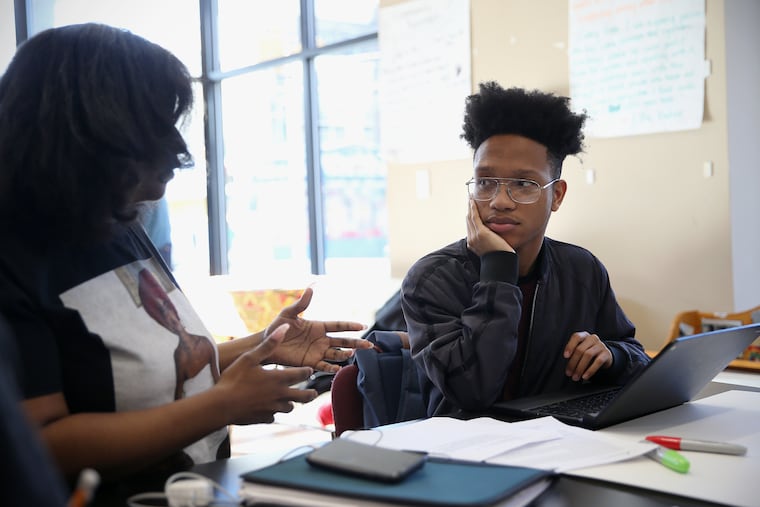Why criminalize students and control schools with a metal detectors mandate? | Opinion
Metal detectors and school police officers’ primary function is to control an environment. That's not what we need.

I’m a senior at Science Leadership Academy at Beeber. Our school relies on the voices of its students to build community. These values have guided me through my high school career. Growing and learning in a community that encourages students to be actively engaged is how our school thrives, and one of the primary reasons our leadership has exercised discretion in choosing not to implement metal detectors.
But the recent school board mandate subverts that individual school autonomy. It will implement an “emergency preparedness” plan in all district high schools, mandating walk-through metal detectors.
Members of the Philadelphia Student Union, to which I belong, were initially notified of the policy in late December. We immediately focused our energy on developing an inclusive campaign to start a conversation on school safety and metal detectors, including student voices. We spent several months studying and critically analyzing the plan, engaging the district’s only three high schools — Science Leadership Academy, SLA Beeber, and the Workshop School — that do not use metal detectors. We concluded that metal detectors, like in-school police, criminalized students instead of protecting them.
Students opposed to the new policy provided rigorous testimony to the Board of Education from February to March. Much of my own testimony focused on the hypocrisy of a plan that claims it would protect student safety and health, while at the same time ignoring that many schools across Philadelphia do not have enough counselors to accommodate their size, if they have any at all. Many high schools also lack substantial social and emotional support systems, along with full-time nurses and classroom resources, while they have overcrowded class sizes and crumbling buildings. Yet amid these failures, resources are appropriated to metal detectors and school police.
Students should not enter an environment meant for learning that actively employs tools of law enforcement. When young, predominantly black and brown youth are subject to search and seizure, can be detained or arrested at the discretion of school police officer, and are threatened with force instead of given counseling and support, it shows the school-to-prison pipeline in action.
In a late February Board of Education meeting, I spoke on the disparities between schools in the city and those in Lower Merion School District. Lower Merion High School is only three miles from my school, SLA Beeber, yet security devices and school police have far less of a presence there. This kind of disparity sends a clear message: White, affluent students are not subject to criminalizing policy, but black and brown, working-class students are, and now their principals do not get a choice in deciding safety procedure.
The school board is supposed to represent students, yet the surveillance policy fails to trust our vision. Instead of providing definitive evidence that metal detectors protect students and staff, board members provided hypotheticals to justify their support of the policy. It is irresponsible to implement policy that impacts thousands of students without strong evidence and student voices.
Obedience and control have unfortunately become interchangeable with safety. Metal detectors and school police officers’ primary function is to control and monitor an environment.
I implore people on the other side of this issue to think of how we want youth to see themselves outside of their learning environments. Should they be indoctrinated into rigid obedience and put faith in systems of criminalization? Or should they be bold, independent leaders encouraged by vigorous student development?
Amir Curry is a West Philadelphia resident and senior at Science Leadership Academy @ Beeber. He currently serves as student organizer with the Philadelphia Student Union.